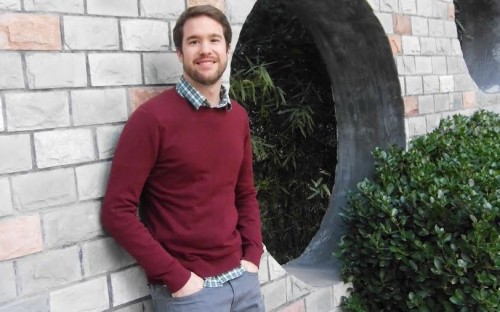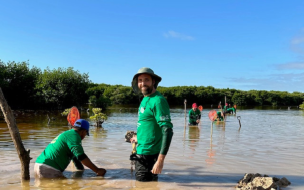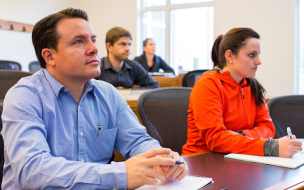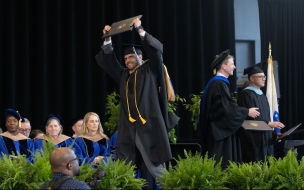He trained as a telecommunications engineer before joining Spanish IT services and consulting company Indra Sistemas. In search of a less technical role, he moved to work in innovation consulting, and then project management at a railway telecommunication systems firm.
After securing a scholarship from CaixaBank, the adventurous innovator relocated eastward to pursue an MBA at CEIBS, also spending time as an exchange student at Melbourne Business School in Australia.
Since completing his MBA, Eduardo has been working in Qingdao, China, as an open innovation program manager for Hong Kong-listed household appliances company Haier.
Why did you decide to pursue an MBA?
I wanted to eliminate any glass ceiling in my career.
Although I had experienced technical, consulting and project management roles as an engineer, I felt I lacked some important knowledge about business. An MBA was the perfect way to fill that gap in a practical way.
What was the hardest thing about the MBA application process?
I actually had to endure two application processes! Firstly to apply for the Spanish La Caixa scholarship to cover my tuition and expenses, and then for CEIBS.
The La Caixa scholarship is very prestigious because you need to have solid career development plus a good reason to apply to a specific program. By comparison, the CEIBS process seemed much easier as the big filter had already been passed in Spain.
Why did you choose to study at CEIBS in particular?
CEIBS is by far the best business school in China and recruiters know it.
I took my time to network with some of its MBA graduates and I heard how big an impact CEIBS had had on their careers.
Once I got my Scholarship from La Caixa, I could choose between CEIBS, the Hong Kong University of Science and Technology and the Indian School of Business. I had visited mainland China, Chengdu, a year earlier and I loved it. CEIBS was the best option to keep exploring China and to launch an international career.
How have you profited from your experience studying for an MBA?
Taking an MBA at CEIBS was the best decision of my life.
The quality of teaching, both practical and theoretical, was amazing. I still work in innovation, but now when I work on an idea, I consider not only the technical feasibility, but also its business implications, how to market it and how using it would change company strategy.
It’s not easy for foreigners in China to find good career opportunities but at CEIBS I got the chance to network with people from companies directly and I got my job at Haier through a CEIBS event.
How are you finding your experience working in China?
China is just another World. Compared to Europe, things here are faster, relationships are more practical and the work culture is totally different.
I work in a young, entrepreneurial team where everyone contributes and challenges the next steps. It’s an everyday-learning experience! There is a constant feeling of uncertainty and a learn-by-doing work style that I find very exciting.
The way to express your ideas is different, you should never disagree in front of many people and you should be careful not to offend colleagues, friends or family.
Negotiation style is very different too. Western linear business processes change into a cloud in China, and sometimes things slow down, move forward or are cancelled without a clear explanation. Being patient and forging relationships is essential to be successful here.
What are your plans for the future?
I just got married and I plan to have a family soon. My wife is Chinese, so I want to stay in China and develop my career here.
I am happy at Haier and I definitely want to stay working in innovation, regardless of the industry.
I am learning a lot about partnership management between China and the West. In the long-term, I would love to start my own business in technology and innovation management between these two parts of the world.
RECAPTHA :
23
a4
61
b7








